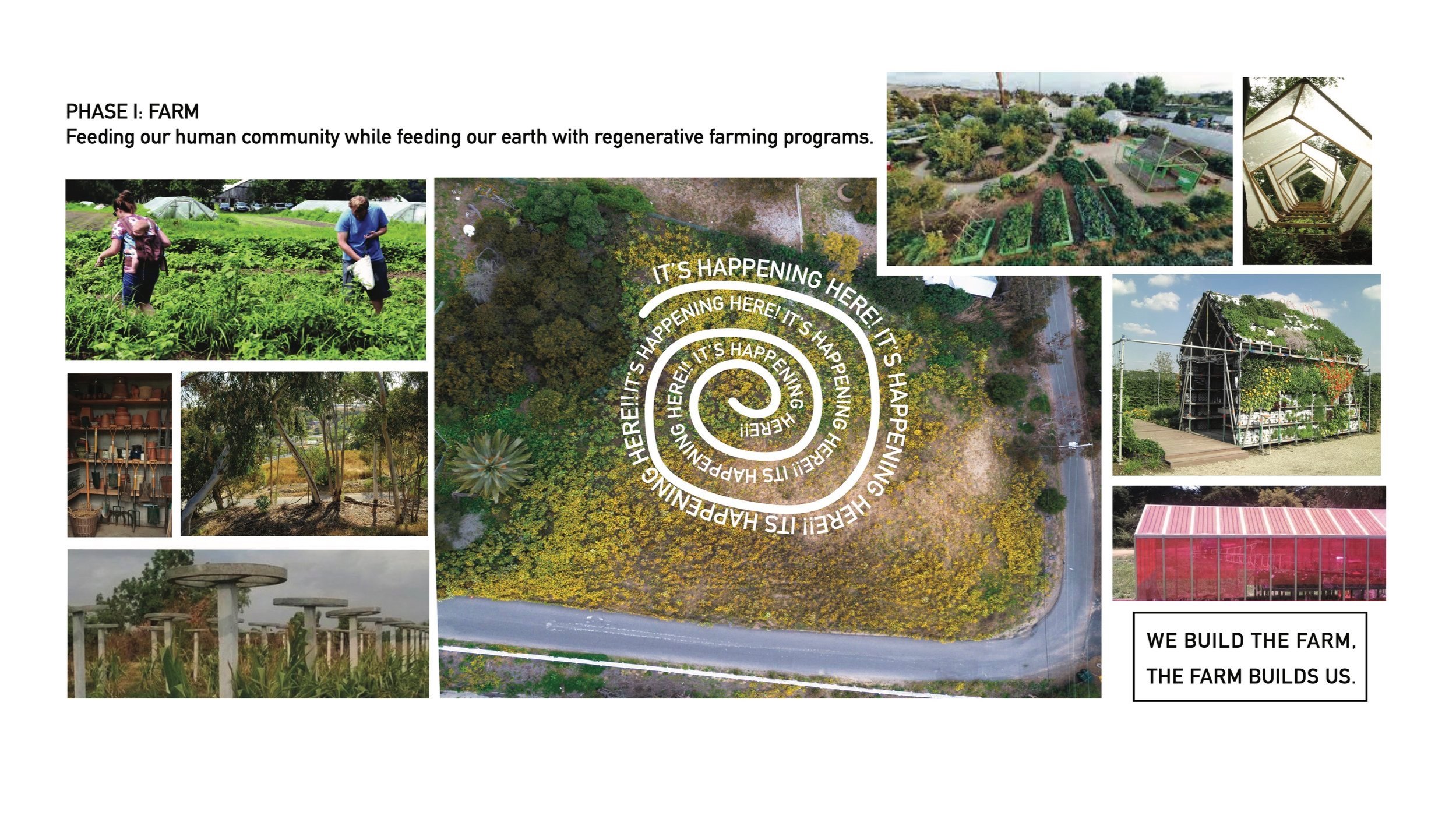
PHASE I: FARM
Feeding our human community while feeding our earth with regenerative programs.
We have access to a field that can be farmed, located in a climate that supports growing almost anything. We plan to grow exotic fruit trees and specialty crops (vegetables) to provide food, mentor teenagers and build a farm stand that serves our people. Across the street, in a small space, we are successfully growing mangoes, guavas, bananas, finger limes, sapotes, cherimoyas, avocados, and passionfruit grow.
In order to begin our project, we have to connect the land to the existing water supply underneath the road. Once we secure water access, we will use regenerative practices, like planting cover crops and rotating them, to improve the soil and create a healthy ecosystem for future crops.
We will need a fence, a hoop house, a farm stand, soil amendment, seeds, trees, etc. (We’d love to share with you our budget, just ask).
We plan to create an educational environment for youth to engage on a variety of issues, done in the context of nature and agriculture. The goal will be to use the farm setting and associated experience to create workshops around how to best balance social media and technology in their own psychological and social development, and their interactions within the real and tangible world.
We emphasize learning useful life skills to be used throughout one's life, especially ones that feed us. In our teenage soup kitchen, we will cook together, provide food for those who need it, and learn about low impact living, the importance of organic vegetables, and eating well in an “off-the-grid” environment.
Encinitas is 40 miles from the border and is accessible via public transit from other parts of the city. San Diego is 30% Latino. Historically, people of color and marginalized identities have had to carve out radical means of production, community, healing, and food justice. We aim to advance communal alternatives to existing industrial agricultural systems in theory and practice.
